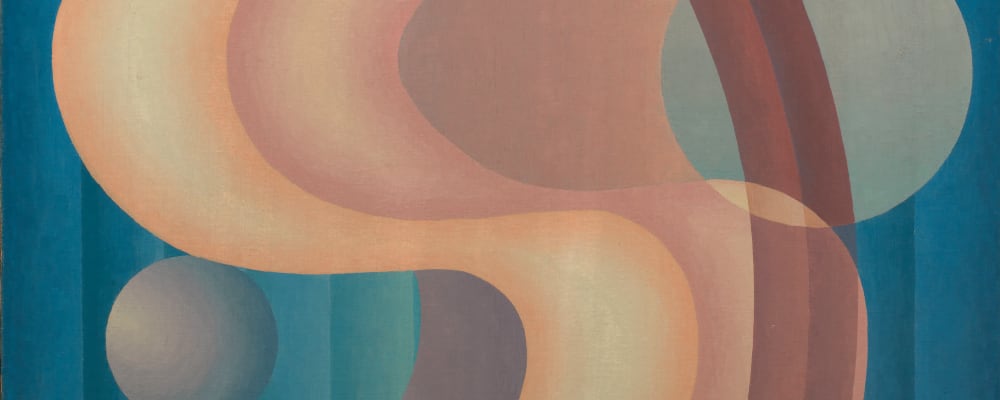“It’s because you’re a generalist.” When my friend made this observation about my success with AI, I stopped for a beat. I was sharing my excitement about all the ways AI was transforming my work and creative processes, but I hadn’t connected it to this fundamental aspect of who I am.
It made me reflect on something I’ve known about myself for a long time: I have never had the temperament or personality to become a specialist in any particular area. I’ve always been too curious, interested in too many different things to settle on just one path and stick with it for life. And while I’ve come to peace with this - even learned to love being a generalist - it isn’t always easy in a world that seems to value specialization above all else.
An Unexpected Superpower
I first realized how being a generalist might actually be a kind of superpower when I helped co-found a non-profit called the Khmer Magic Music Bus back in 2013. The project’s mission is to help restore traditional music to the people of Cambodia. What struck me was how my varied skills came together to help make it possible: I handled everything from the technical setup of web pages and crowdfunding systems to shooting and editing promotional videos, writing copy for emails and pitches, choosing design elements, and setting up fulfillment pipelines. I even turned the whole experience into a teaching unit asking students to explore how they might make positive change in the world.
Of course, society doesn’t exactly encourage us to become generalists. I have several friends who’ve focused their technology talents into specialized careers, and they make far more money than I do. Specialists are seen as experts, commanding respect for their deep knowledge in ways that generalists rarely experience. Look at college programs - you won’t find many “generalist” majors. Consider how few doctors choose general internal medicine over a specialty. The message seems clear: pick one thing and stick to it.
Strength in a Dynamic World
There are, however, hidden advantages to being a generalist that often go unrecognized. Having a broad skill set means you can make connections between seemingly unrelated fields, seeing patterns and possibilities that might be missed by those with a narrower focus. You can be useful in a wide variety of contexts, even if you’re not the ultimate expert. You develop a keen sense of your own knowledge boundaries because you’re constantly exploring new areas. Perhaps most importantly, you become skilled at learning itself - knowing how to approach new challenges and acquire new skills becomes second nature.
This versatility becomes particularly powerful in certain fields. AI is definitely one - as a general-purpose technology, it benefits from people who can see its potential across different domains. I’m not an expert coder, but I can use what I know to create powerful software tools. I’m not a professional project manager, but I can develop actionable plans that help myself and others reach goals. I’m not a trained musician or visual artist, but I can still create works I’m proud of. There’s so much I can understand and do, even if it’s not at the deepest level, and I can combine these skills in ways that create something greater than the sum of its parts.
Education is another field where generalists thrive, as interdisciplinary knowledge often creates richer learning experiences. Creative industries, too, benefit from people who can bridge different disciplines and perspectives. In each of these areas, the ability to draw connections and see broader patterns becomes an unexpected strength.
Embracing the Path
The journey isn’t without its challenges, of course. One of the biggest is the constant awareness of how much deeper others’ knowledge goes. For every skill I’ve developed, I can point to someone who does it far better than I ever will. There are better coders, teachers, artists, musicians, writers, and speakers all around me. Each example reminds me of something I can’t do because I haven’t dedicated enough time to master it.
But I made my peace with being a generalist long ago, and I wouldn’t want it any other way. I’m simply having too much fun, doing tons of different things, and wondering what else is out there to discover and learn. While we absolutely need specialists - and I deeply admire their dedication and expertise - generalists bring their own valuable perspective to our complex, interconnected world.
If you identify as a generalist, too, here’s some advice that has helped me along the way:
Stay true to yourself and your passions. The world might push you to specialize, but there’s nothing wrong with having multiple interests and pursuing them all.
Cultivate your curiosity and trust your instincts. That desire to learn about new things and make unexpected connections is a strength, not a weakness. Over time you’ll have a one-of-a-kind set of skills.
Find your optimal depth in each area. You don’t need to know everything about a subject, but you should go deep enough to develop real understanding and practical capability.
Look for ways to cross-pollinate your knowledge. Your unique combination of skills and perspectives can lead to insights and solutions that specialists might miss.
Be kind to yourself. The more you learn, the more you’ll realize how much there is to know - and that’s okay. Your breadth of knowledge is valuable, even if it doesn’t always feel that way.
In the end, it all comes back to that fundamental curiosity - that desire to explore, to learn, and to connect different ideas and skills in new ways. In today’s dizzying world of constant change, this ability to bridge disciplines and see the bigger picture isn’t just valuable - it’s essential. While specialists will always be crucial, there’s a special kind of magic in being a generalist.
